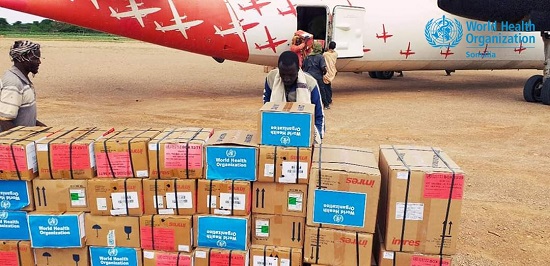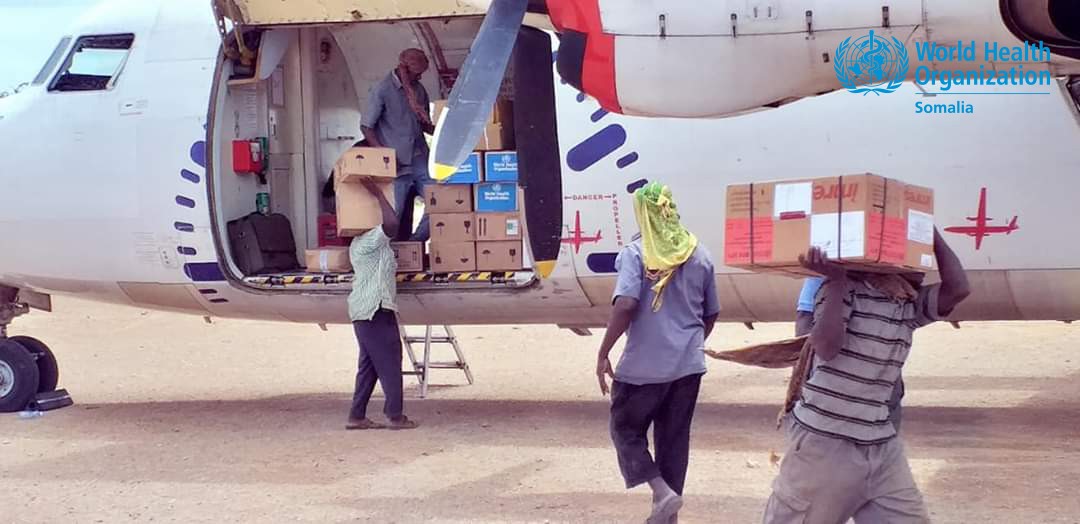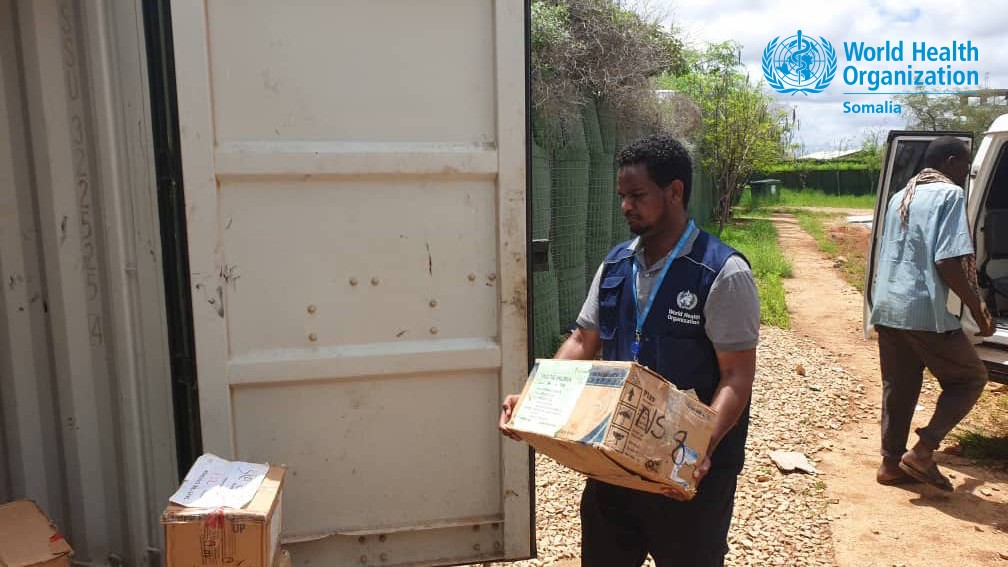
18 November 2019 – Recent flooding has plunged Somalia further into a deep humanitarian crisis. Heavy rains in Somalia and Ethiopian highlands led to increased water levels in the rivers Shbelle and Juba, which has affected an estimated 539 888 people and lead to the displacement of over 370 000 people, leaving 25 dead and 47 injured.
According to the monitoring of the Somalia Water and Land Information Management, heavier and continuing rains are expected, which may lead to greater displacement. As a result of the flooding, health facilities have been damaged and essential health services, such as immunization services and vector control activities, have been suspended. Owing to damage to roads, movement of relief items, including medical supplies, has been difficult.
Along with extensive damage to property and livelihoods, standing flood water is a cause of concern for public health in the affected areas. While WHO is closely monitoring the health situation in affected areas, there remains an increased risk of water- and vector-borne diseases owing to lack of access of the displaced population to safe water and sanitation, including due to disruption of essential health services.
WHO has scaled up its emergency health response operations in the affected districts to prevent epidemics and disease-related mortality. The main focus of response efforts has been to:
- improve access of the flood-affected vulnerable populations to emergency life-saving health interventions;
- support the deployment of rapid response teams;
- enhance the EWARN surveillance system to monitor health threats; and
- replenish essential medical supplies for the provision of health care.
So far, no deaths from communicable diseases have been reported from the flood-affected areas as a result of WHO and other health partner’s intensified response operations.

WHO will continue its health response operations in the flood-affected districts over the next 3 months in order to prevent avoidable deaths, protect the health of those most vulnerable from disease and prevent any epidemic in the aftermath of the flooding.
The areas affected by the current flood are prone to epidemics, such as cholera, malaria and other vector-borne diseases. Additionally, at least 10 health facilities have been completely destroyed in the flood, depleting health services in the affected districts.
WHO is requesting for additional support of US$ 1.38 million to further scale up and sustain its current surge operations in the flood-affected districts.

“We are planning to reach out to over 450 000 of the most affected population with essential and life-saving health interventions for next 3 months. As soon as the flood water starts to recede, the next phase of our emergency response operation will help restore and rehabilitate damaged and non-functional health services. Our priorities would continue to be to prevent avoidable mortality and morbidity due to flood-driven environmental health hazards and displacement,” said Dr Sk Md Mamunur Rahman Malik, WHO Representative for Somalia.
The overall objective of WHO’s emergency health response surge plan is to ensure that the targeted beneficiaries, including men, women, boys, girls, and persons with disabilities who are the most vulnerable affected by the current flooding have access to lifesaving health interventions in line with Somalia’s universal health coverage road map and epidemics from flood-associated diseases are detected and prevented early.
For further information, please contact:
Kyle Defreitas
External Relations & Resource Mobilization Officer
T: +254-20-51-21519
M: +254-782-501-324
Fouzia Bano
Communication Officer
M: +252-619235880








